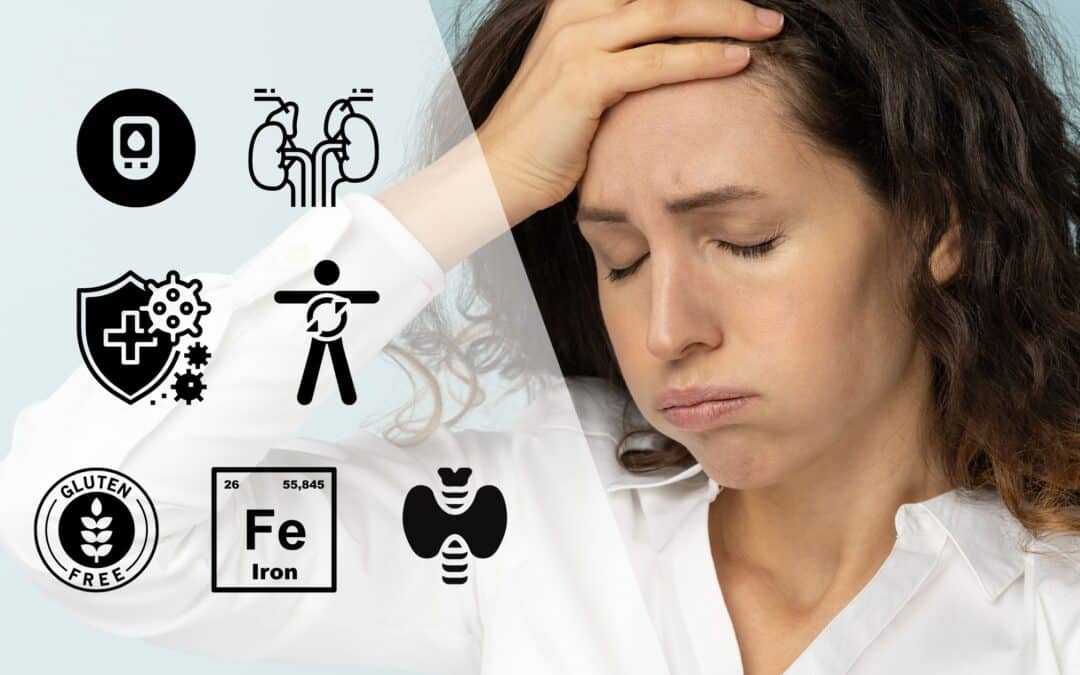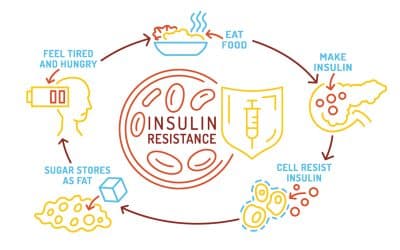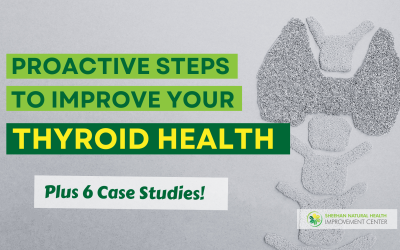Female hormonal symptoms. They’re rampant! At almost every stage of life, women are subject to all kinds of symptoms related to their monthly (or lack of) hormonal fluctuations. Too much estrogen, estrogen dominance, low progesterone, high male hormones, too much insulin, inflammation—where does it all end??
At our clinic, we focus on restoring female hormonal balance naturally.
This means natural health improvement FIRST. We resort to supplementing with hormones ONLY AS A LAST RESORT. As one of my mentors used to say, “hormones are powerful chemicals. They are not supplements.” I took that advice to heart, and we have committed to practicing 99.5% free from using hormones! Even bioidentical.
Here are 7 Keys that help you identify imbalances in your body before resorting to taking hormones. After all, if you can get the job done by identifying and correcting root cause issues, that would be the best approach, wouldn’t you agree?
Key #1 – Identify and Eliminate Food Sensitivities
Your gut, digestion, brain, inflammation, and hormone balance—they’re all connected. This is how the foods you’re consuming can cause your hormone balance to suffer. The primary food sensitivities we see in our practice are:
- Gluten & Wheat – yes, wheat sensitivity is a real thing. And yes, these foods can completely mess up your hormones if you’re sensitive to them.
- Dairy – even unpasteurized – some women just have a bad dairy problem. They will not recover until they cut it out COMPLETELY. Not a fun truth, but hey, we never said getting well naturally would be easy, did we? BUT IT’S SO WORTH IT.
- Eggs – to a lesser degree. Egg sensitivity is not quite as common as wheat, gluten, and dairy, but we do see it. And if this is the key to restoring your health, you will not completely recover your hormonal health until you completely cut out eggs.
We identify these with blood tests (food antibody tests—IgG, etc.). These are the most scientifically proven and the most clinically useful. The cost of the tests varies from extremely cheap for a serum screening, up to the Mercedes of food antigen testing using Cyrex labs (and the best)—but the basic gist is YOU MUST IDENTIFY YOUR FOOD SENSITIVITIES ONE WAY OR ANOTHER.
I know what you’re thinking. I have female hormonal symptoms, not digestive issues! However as it turns out, 86% of people that have food sensitivities DO NOT have digestive symptoms! Instead, they have (you guessed it) hormonal symptoms, fatigue, skin issues, brain issues, and the list goes on.
Supporting the digestion and healing of the gut are important, too, but it is impossible to accomplish this until you commit to cutting out the foods you’re sensitive to.
Key #2 – Address Blood Sugar Balance
If you ever read the book Life Without Bread by Dr. Lutz, you know that insulin is a hormone. And if your insulin balance is off because you’re carbohydrate intolerant, your other hormones will suffer. This is especially true for most women with PCOS, not to mention metabolic syndrome, pre-diabetes, and diabetes. So if you have a sugar problem – any kind of sugar problem, even a mild one – you are probably already suffering from symptoms of female hormonal imbalance.
In fact, most people in this country have blood sugar problems, and don’t know it—yes, even thin people!
Here’s a link to an article we wrote specifically on how we test for and handle this situation:
3 Blood Tests You Must Order to Assess Blood Sugar Control Properly
Key #3 – Assess and Support Immune Function
We’ve seen it so many times – chronic infections can truly mess up your hormones. From mystery PMS to infertility, you can suspect some immune stress is lurking. We’re not talking about the common cold, flu, or even a stomach bug; we’re talking about “stealth pathogens”—viruses, bacteria, yeasts/fungi, and parasites that can lurk around in your system and wreaking havoc without truly stirring up what most would consider symptoms of “being sick”. Epstein-Barr virus or EBV is a good example of a stealth pathogen. So is a myriad of icky microbes that throw your gut flora out of balance—even infections in the teeth and jaw spell futility for getting your hormones on track—unless you find them and handle them once and for all!
So how do you find these “stealth” infections? You can spend thousands of dollars on stool tests, PCR tests, and antibody tests – some worthwhile, some not so much. We prefer to identify the immune stressors indirectly using regular old blood tests and then let your body show us how to handle them using Nutrition Response TestingTM.
Blood tests like Ferritin, hs-CRP, Fibrinogen, and your white blood cell counts—can all show whether your immune system is stressed by lurking “stealth” pathogens.
Key #4 – Thyroid Balance
Thyroid health can affect the balance of female hormones – and vice versa. If someone has a hypothyroid situation – even a mild one that does not yet require medication – it must be addressed to get the female hormones back into balance.
Some tests that we commonly run for thyroid assessment are TSH, Total T4, and Anti-TPO antibodies. We routinely run antibody tests to determine if someone has an autoimmune condition that affects the thyroid and brain. It is called Hashimoto’s thyroid disease; this is the most common autoimmune disease in the country, and it causes hypothyroidism within 7 years on average. Identifying this situation is crucial to helping save the thyroid in many cases – and to get your hormonal health back on track.
Key #5 – Find and Fix Cellular Detoxification Issues
Certain nutrient deficiencies will slow down your body’s ability to deactivate and transform toxic substances at the cellular level. We routinely screen for issues with these nutrients – especially testing vitamin B12 and folate levels – since, of course, if cellular toxins are backing up, this causes inflammation that will affect your hormones. Another easy way to do this is with a serum Homocysteine test.
Now, if you’re low in important nutrients, it’s also possible you’re not absorbing nutrients from your food efficiently – in which case we have to back up and handle Key #1 again (food sensitivities). See how all these steps are related?
Key #6 – Optimize Your Iron Balance
Everyone should get their iron checked. If it’s low or high, you need to know. Either situation could wreck your hormones.
Just to get down to brass tacks about iron:
If iron is low:
This could be due to low intake, gut inflammation that’s keeping you from absorbing iron from your diet, or immune stress.
If iron is high:
This could be a genetic tendency (1 in 9 for some groups), inflammation, or immune stress.
I’ve written about high iron at length in this series:
And I talk more about the importance of iron and thyroid (and by extension all hormonal) health: https://sheehannaturalhealth.com/hypothyroidism-fails-and-6-ways-to-find-success/
Let’s just say iron balance is a big deal.
(By the way, over 90% of the time when your family doctor talks about iron, he’s actually talking about hemoglobin, and in our opinion, these are NOT THE SAME THING and NOT INTERCHANGEABLE—but more on this another time.)
Key #7 – Adrenal Stress
Which came first, adrenal stress or female hormone stress?
Sorry, bad joke!
I admit I don’t know the answer, but what I do know is both must be handled to improve a female hormonal imbalance situation.
Hormones are all in the same family. They function and dysfunction as a group. So, if your adrenals are stressed, they can definitely throw off your female hormones and vice versa.
There are lots of simple tests that can be done to determine if your adrenals are stressed. If you ever got a little dizzy when you go from lying down to standing up, that is one clue you might have an issue there.
Many of our patients find that a little adrenal support goes a long way to helping them feel better and recover from hormonal imbalances.
So, What Are the Next Steps?
This page explains our intake process:
This page explains more about our laboratory testing:
We wish you success in finding the keys to unlock your female hormonal health!
Related Articles
Insulin Resistance Explained: Early Signs, Functional Testing, and Natural Solutions
One of the things we talk about often in our office is a monster of a problem called insulin resistance—and for good reason. It's one of the most common yet overlooked root causes of issues like fatigue, stubborn weight gain, brain fog, hormone imbalances, and more....
Proactive Steps to Improve Your Thyroid Health (Plus 6 Case Studies!)
Table of Contents1. Understanding Your Thyroid2. How Low Thyroid Function Affects the Body3. Reduce Your Exposure to Toxins4. Avoid Foods You Are Sensative To5. Support Your Immune System6. Optimize Your Liver and Gallbladder Function7. Rule Out Scar Interference8....
5 Tips to Avoid Dairy If You Have This Food Sensitivity
Photo by Austin Wilcox on Unsplash5 Tips for Avoiding Dairy If You Have This Food Sensitivity What are some tips for following a dairy free diet? Since we have added dairy-sensitivity screening to our basic blood panel, many people have been asking me...
Becky’s “Buck Shack Stew”
Becky's "Buck Shack Stew" Becky, one of our staff here at Sheehan Natural Health, wanted to share her stew recipe that she loves to make when visiting her cabin in the mountains. Enjoy!Ingredients one meaty grass-fed beef soup bone one large sweet onion, sliced...
The Page Diet: The Most Effective Diet For Overall Health
What is the Healthiest Diet? If you have been a patient of ours, you probably know there are many dietary strategies that can work very well to get you healthier and feeling better. The best diets out there minimize or eliminate processed foods and stress regular...
Liver Pâté Recipe- A Delicious Way To Eat Liver
One of the most delicious ways to enjoy liver is as liver pâté. Julia Childs once said, "The memory of a good pâté will haunt you for years.” I couldn't agree more! Here is a slight variation to Sally Fallon Morell's Nourishing Traditions chicken liver pâté with...
Liver and Gallbladder: Signs, Symptoms, and Treatment
I recently found out one of the most commonly searched pages on our website is "liver and gallbladder flush". Probably because one of the most common core issues with our patients is liver and gallbladder problems (about 30-50% of our patients have a major problem...
Sleep Issues and Chronic Disease
Sleep issues and chronic disease. Is the lack of a good night’s rest the simple answer to your problems? The Consequences of Poor Sleep Did you know there is such thing as World Sleep Day? This important day falls in March to draw attention to the issue of sleep...
Why Can’t I Lose Weight?
Why can’t I lose weight? I hear this question all day long, so I decided to write a pointed answer to this common question. Common knowledge is that is you cut calories, you will eventually lose weight. The thought is that if you burn more calories than you consume,...
Introduction to Thermography
History of Breast Thermography In 1982 the FDA approved breast thermography as an adjunctive diagnostic breast cancer screening procedure. Since the late 1950s, Breast cancer thermography has been the subject of extensive research. For example: more than 800...








